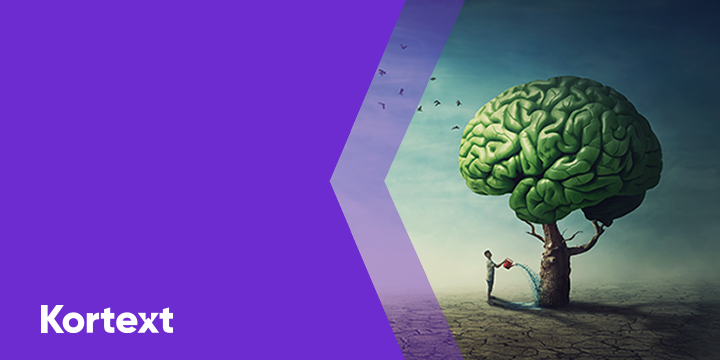This year’s theme is making mental health and wellbeing a global priority for all due to the ever-growing social and economic inequalities threatening wellbeing everywhere.
So how does this theme translate to mental health within the higher education sector?
Data released earlier this year by the ONS revealed that more than a third (36%) of students reported that their mental health and wellbeing had worsened since the start of the Autumn 2021 term.
This is supported by research undertaken by Kortext in September 2022, revealing that over 60% of students were both unprepared for university life and struggled to adjust at first.
Add to this the mounting pressures of the cost of living crisis and – according to Save the Student’s 2022 Student Money Survey – we are seeing 4 in 5 students saying they have thought about dropping out of university at some point, with 52% citing financial worries as the reason for this.
And it’s not just students who are struggling. Higher education staff are too – with data published in 2021 in the British Medical Journal highlighting that around 20% of higher education staff members and 30% of postgraduate research students met thresholds for probable depression or anxiety on the questionnaires, which rings alarm bells.
What can higher education institutions do to tackle the elephant in the room?
First of all, mental health is not and should not be the elephant in the room. Everyone has mental health – some healthier than others – and that needs to be recognised through openness and transparency.
Now that one’s out there, there are several things that can be done to aid mental health for all within the sector.
Destigmatising mental health
We believe one of the best ways to destigmatise mental health is to open the conversation on the topic. Whilst universities are working hard to address this, many students and staff still tend to keep their mental health struggles to themselves, not giving us a true representation of how everyone is feeling.
However, HOP, a peer-led programme designed to support people with mental illness in their decisions about when and with whom to disclose their mental illness, is hoping to change that and claim numerous benefits to talking about mental health such as:
- Removing the feeling that you’re suffering alone
- Showing how common it is to not feel okay
- Finding solutions that may not have been considered
- Increasing awareness of other people and their needs
- Increasing self-acceptance
In addition to the above, by providing a safe space for staff and students to discuss their mental wellbeing, they can feel empowered while also combating stigma and teaching others about how they can help themselves and others feel better.
Education and Resources
Every university has resources available to support student mental health, but their visibility and availability varies between institutions.
Have you made sure your mental health and wellbeing resources are easy to find and access?
Whilst we are all aware that physical resources, such as time with a counsellor, would be limited in availability, other resources including mental health books, workshops and advice can be provided quite simply though VLEs.
A top tip would be to make sure that navigating to the resources is easy, and that all students are aware they are there without having to ask for them – sometimes having to ask is a barrier to finding help.
Mental health and wellbeing resources can act as a form of support and education. Education on the topic of mental health can help to break the stigma and the cycle because it can increase awareness of what causes certain conditions, how individuals can look after themselves and their mental health as well as provide support for their peers.
Events
Events do not have to be mental health specific, but they should be accessible and aim to inspire positivity through a social activity that brings people together or a weekly exercise event. This would encourage people to meet up in person, helping to reduce feelings of isolation and increase feelings of belonging as well as endorphins.
What can higher education partners do?
At Kortext, we have partnered with Student Minds, the UK’s leading student mental health charity, to support students as they navigate their way through university.
With roughly 1 in 3 students suffering clinical levels of psychological distress during their time at university, and university leaders naming student mental health and wellbeing as a top strategic focus for the future, this partnership could not come at a more crucial time for the UK’s 2.8 million students.
Our donation and subsequent partnership ensures that students in distress have access to information and mental health support at the point of need, by including a direct link to Student Minds’ online support hub, Student Space, through the Kortext student bookshelf.
We also understand the importance of student data and the power of insightful analytics in identifying and tackling student mental health issues. The comprehensive student engagement and content usage data gathered from our platform is providing universities with a real-time, leading indicator of student disengagement which is often a precursor to or sign of poor mental health and wellbeing. With this data at their fingertips, universities can provide early intervention and tailor support to those who need it most.
Why is Student Minds important to Kortext?
Kortext facilitates content access and engagement for over 2 million students at 2,300 universities worldwide. With the Kortext Arcturus platform, we empower universities in their mission to educate the next generation of difference makers, so naturally we’re invested in the student journey and understand how mental health can shape that experience – for good and bad.
There’s nothing wrong with thinking and talking about mental health. Take care of yourself, and know – whatever you are feeling – you are not alone.

